




Jeans are a staple in many people’s wardrobes, and they can be worn for days on end before needing a wash. But how often should you actually be washing your jeans? The answer may surprise you.
There is a longstanding debate among fashion experts about how often jeans should be washed. Some argue that jeans should be washed after every wear to maintain cleanliness, while others say that washing them too frequently can cause the fabric to wear out faster. So, what’s the truth?
The general consensus among denim enthusiasts is that jeans should be washed sparingly. This is because denim is a sturdy fabric that doesn’t require frequent washing like other materials. In fact, washing your jeans too often can cause them to lose their shape and fade in color. It’s recommended to wash your jeans only when they are visibly dirty or have an odor.
Instead of washing your jeans, you can freshen them up by spot cleaning stains or simply hanging them outside to air out. This not only helps to preserve the integrity of the denim but also helps to conserve water and energy.
So, the next time you’re wondering whether to toss your jeans in the washing machine, think twice. Washing your jeans less frequently not only extends their lifespan but also reduces your environmental impact.
Remember, jeans are meant to be worn and enjoyed, so don’t worry too much about keeping them spotless. Embrace the natural fading and aging that comes with wearing denim, and you’ll have a pair of jeans that will last for years to come.
How Often Should You Wash Your Jeans?
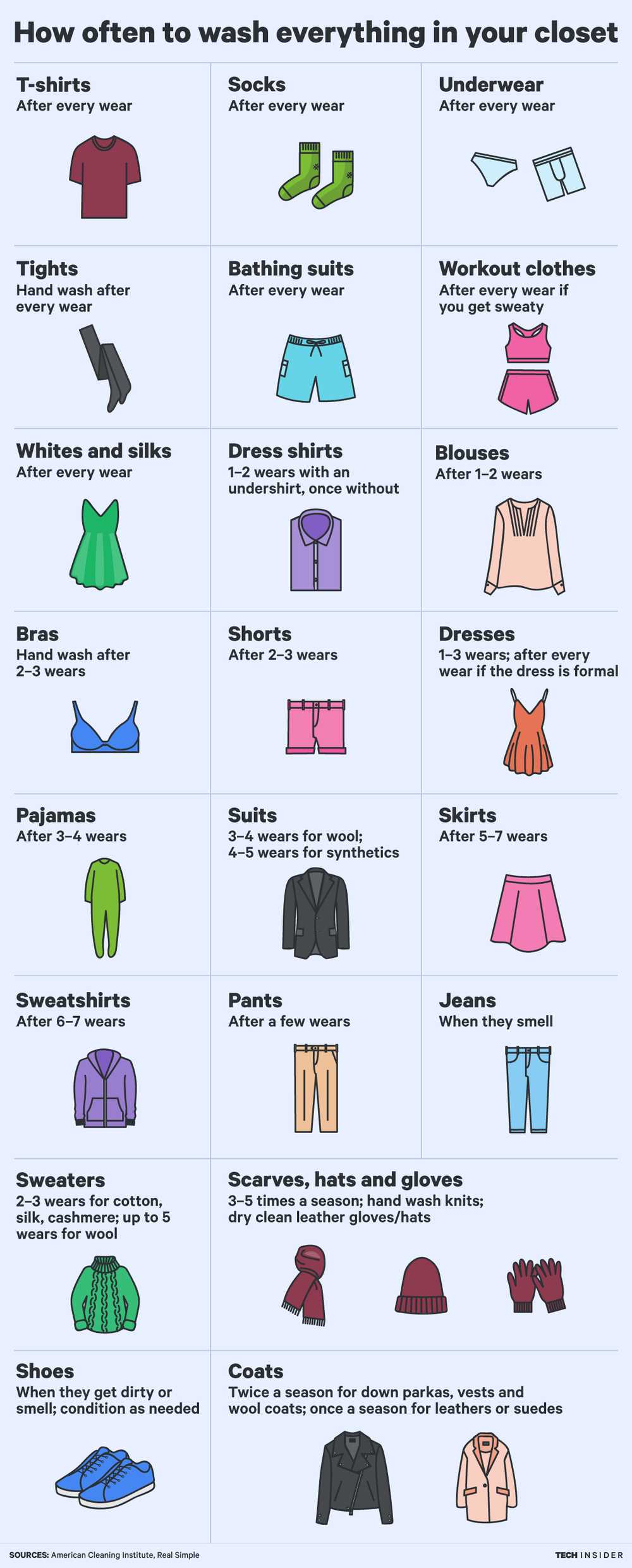
Washing jeans is a task that many people struggle with. On one hand, you want to keep them clean and fresh, but on the other hand, you don’t want to ruin their shape or fade the color. So, how often should you wash your jeans?
The Rule of Thumb
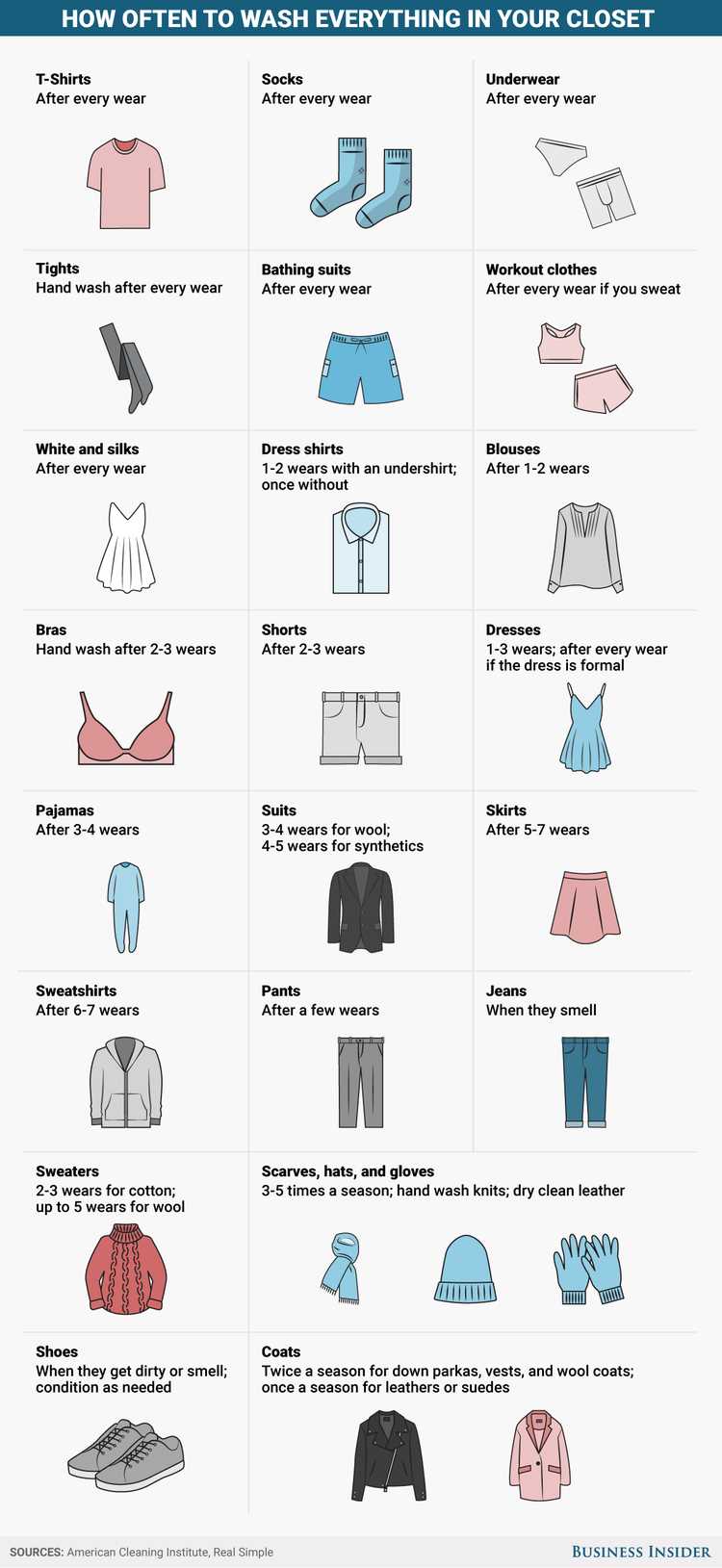
As a general rule, you should wash your jeans after every 5-10 wears. This will help to keep them clean and prevent any odors from building up. However, this can vary depending on your lifestyle and how dirty the jeans get. If you find that your jeans are particularly dirty or smelly, it’s best to wash them sooner rather than later.
Spot Cleaning
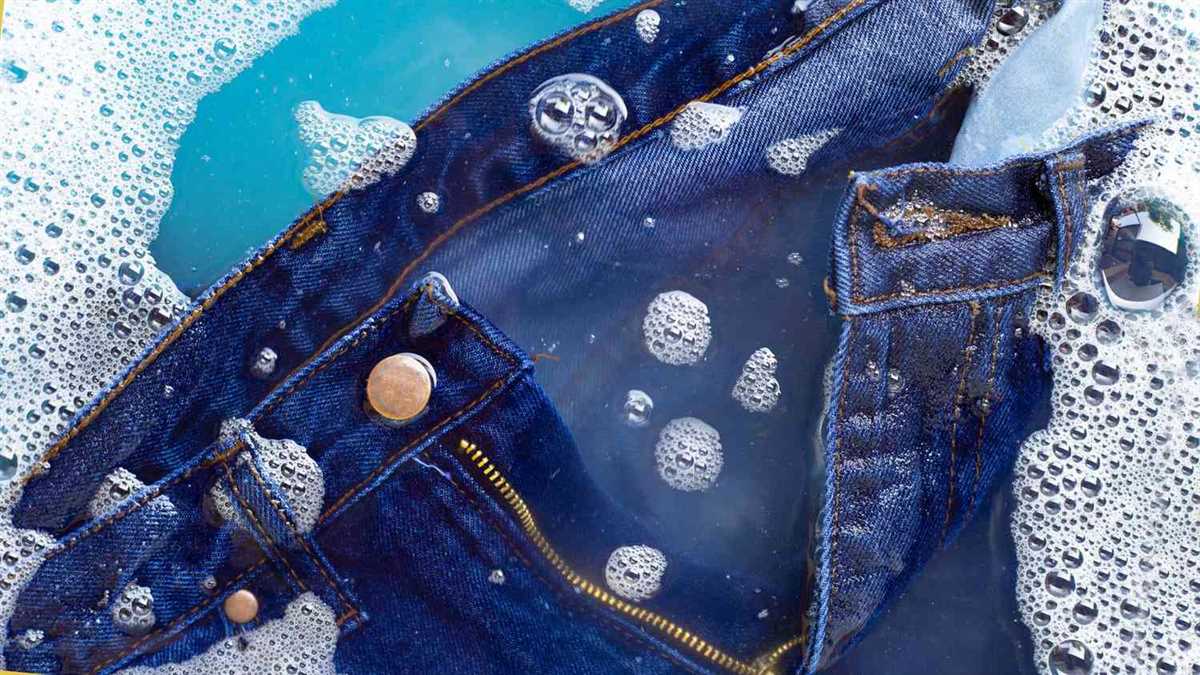
In addition to regular washing, spot cleaning can be an effective way to keep your jeans looking and smelling fresh. If you spill something on your jeans, simply dab the stain with a damp cloth or use a mild detergent and water to gently scrub the area. Be careful not to rub too hard or use harsh chemicals, as this can damage the fabric.
Air-Drying
When it comes to drying your jeans, air-drying is the best option. Hanging them on a line or laying them flat on a towel will help to preserve their shape and prevent any shrinkage. Avoid using a dryer, as the heat can cause the fabric to warp and fade over time.
Storing Your Jeans
Properly storing your jeans can also help to extend their lifespan. Instead of folding them, consider hanging them in your closet or laying them flat on a shelf. This will help to prevent creases and keep them looking their best.
In conclusion, washing your jeans every 5-10 wears is a good rule of thumb, but this can vary depending on your lifestyle and how dirty they get. Spot cleaning can be used to freshen up any stains, and air-drying is the best method for drying. By following these tips, you can keep your jeans looking great for longer.
Factors That Determine Jeans Washing Frequency
There are several factors that can determine how often you should wash your jeans. It’s important to consider these factors in order to properly care for your denim and extend its lifespan.
1. Wear
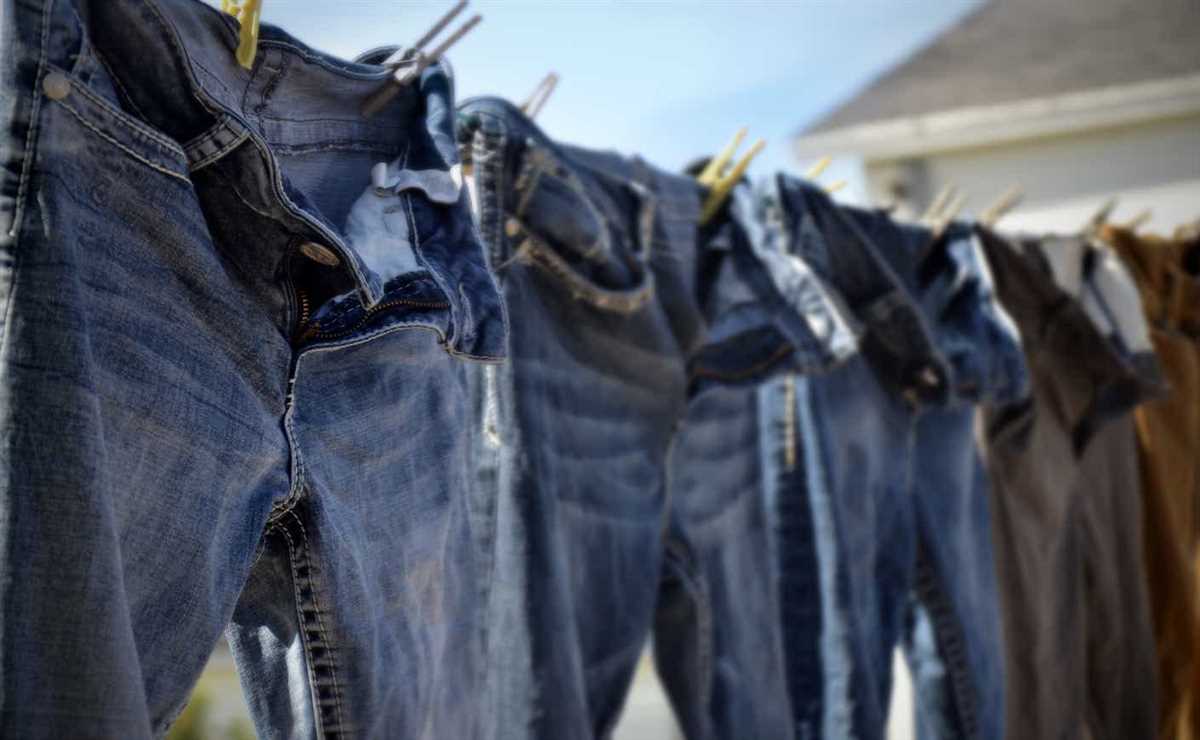
The amount of wear your jeans undergo can play a significant role in determining how often you should wash them. If you wear your jeans daily and engage in activities that cause them to become dirty or sweaty, you may need to wash them more frequently. On the other hand, if you only wear your jeans occasionally or in a relatively clean environment, you may be able to go longer between washes.
2. Stains
If your jeans have visible stains, it’s usually a good idea to wash them as soon as possible. Stains can set in and become more difficult to remove if left untreated for a long period of time. Regularly treating and washing stained jeans can help preserve their appearance and prevent permanent damage.
3. Odor
If your jeans start to develop an unpleasant odor, it’s a sign that they need to be washed. Odor can result from sweat, bacteria, and other factors. However, be cautious about washing your jeans too frequently solely based on odor, as excessive washing can cause them to fade or lose their shape more quickly.
4. Fabric Type
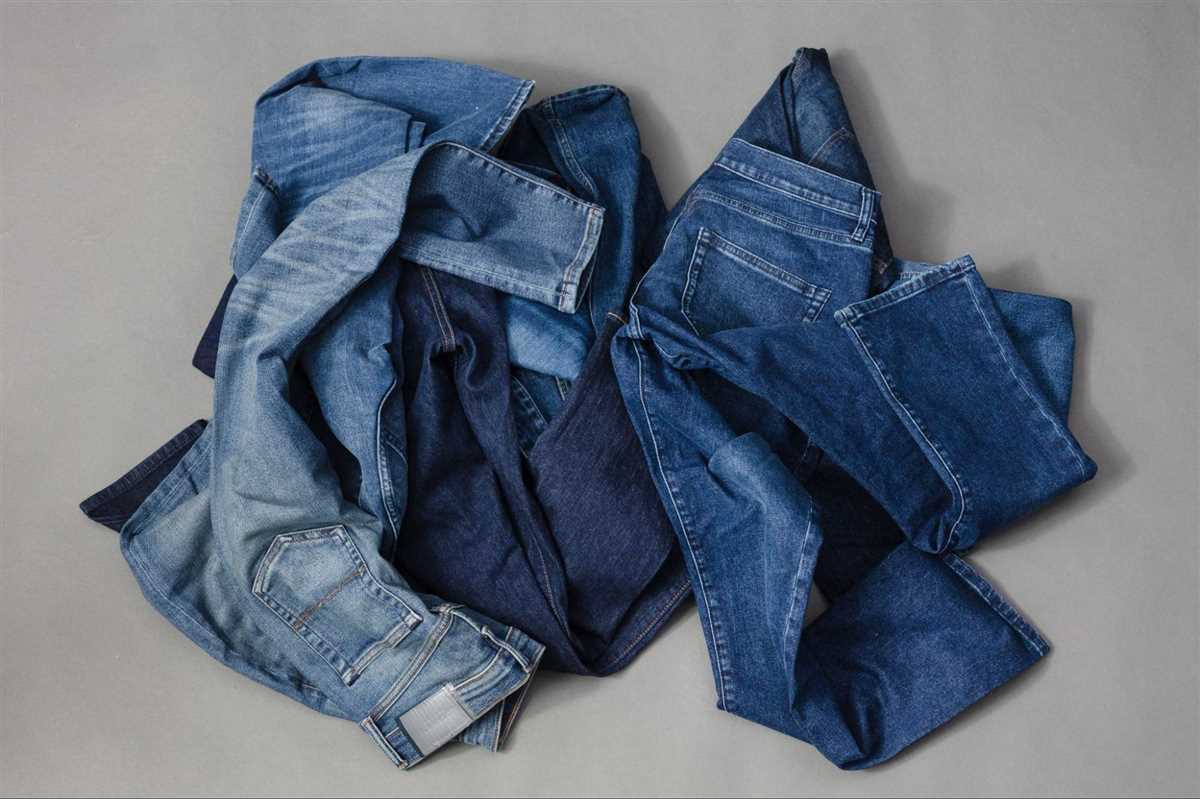
The type of denim fabric used to make your jeans can also impact their washing frequency. Some denim fabrics, such as raw or selvedge denim, are known for their ability to develop unique fades and distressing over time. These types of denim are typically not washed frequently in order to preserve their appearance. On the other hand, pre-washed or lightweight denim may require more frequent washing to maintain their softness and fit.
5. Manufacturer’s Recommendations
Lastly, it’s important to check the manufacturer’s recommendations for washing your jeans. Some jeans come with specific care instructions that can help you determine the ideal washing frequency. These instructions may include advice on water temperature, detergent type, and drying methods. Following the manufacturer’s recommendations can help ensure that you’re caring for your jeans properly.
By considering these factors and adjusting your washing frequency accordingly, you can keep your jeans looking their best and prolong their lifespan.
Tips for Prolonging the Time Between Washes
- Spot Clean: Instead of washing your jeans after every wear, consider spot cleaning them when necessary. Use a mild detergent or soap and a cloth or sponge to gently remove any stains or spills.
- Avoid Over-Washing: Washing your jeans too frequently can cause them to fade, shrink, or lose their shape. Instead, try to go for longer periods between washes to help maintain their color and fit.
- Hang Them Outside: After wearing your jeans, hang them outside in the fresh air to let them air out. This can help remove any odors and refresh them for another wear.
- Use Fabric Refreshers: If your jeans start to smell, you can use fabric refreshers or odor-neutralizing sprays to keep them smelling fresh. Spray the product lightly onto your jeans, focusing on the areas that need freshening up.
- Rotate Between Pairs: If you have multiple pairs of jeans, try rotating them to prolong the time between washes. This gives each pair a chance to rest and recover between wears, reducing the need for frequent washing.
- Spot Treat Stains: To prevent the need for a full wash, spot treat any stains as soon as possible. Use a stain remover or a mixture of soap and water to gently dab the stained area. Avoid rubbing, as it can spread the stain.
- Consider Freezing: Some denim enthusiasts believe that freezing jeans can help kill bacteria and odors. If you’re comfortable with this method, fold your jeans and place them in a plastic bag in the freezer for a few hours. Make sure to seal the bag to prevent any potential moisture or odors from getting in.
- Follow Care Instructions: When it’s finally time to wash your jeans, make sure to follow the manufacturer’s care instructions. This can help minimize any damage and ensure that your jeans stay in good condition for as long as possible.
Signs Your Jeans Need a Wash
-
Odor: If your jeans start to develop an unpleasant smell, it’s a clear sign that they need a wash. Body oils, sweat, and bacteria can accumulate on the fabric over time, leading to an unpleasant odor.
-
Visible stains: If you notice any visible stains on your jeans, it’s a good indication that they need to be washed. Whether it’s a food spill, dirt, or any other type of stain, it’s best to address it sooner rather than later to prevent it from setting in permanently.
-
Loss of shape: Over time, wearing your jeans can cause them to lose their shape. If your jeans become stretched out or saggy, it may be a sign that they need to be washed to restore their original shape.
-
Feeling dirty or uncomfortable: If your jeans start to feel dirty or uncomfortable against your skin, it’s a good indicator that they need a wash. Accumulated dirt and sweat can make the fabric feel rough, causing discomfort.
-
Wrinkled or creased appearance: If your jeans have a wrinkled or creased appearance, it can be a sign that they need to be washed. This can happen due to prolonged wear or from being folded and stored improperly.
-
Excessive fading: If you notice that the color of your jeans has significantly faded, it may be a sign that they need to be washed. Frequent washing can cause jeans to lose their original color faster, so it’s important to find a balance between washing them too often and prolonging their life.
Different Washing Techniques for Jeans
There are several different techniques you can use to wash your jeans, depending on their level of dirtiness and the effect you want to achieve. Here are some popular methods:
1. Machine Washing
Machine washing is the most common method for washing jeans. Follow these steps:
- Turn the jeans inside out to minimize fading and protect the color.
- Use cold water and a gentle cycle to prevent shrinking and damage to the fabric.
- Avoid using too much detergent, as it can leave residue on the jeans. Use a mild detergent or one specifically designed for denim.
- Avoid using bleach or fabric softener, as they can damage the fabric and affect the color.
- Hang the jeans to dry or tumble dry on a low heat setting.
2. Hand Washing
If you prefer a more gentle approach, hand washing can be a good option. Follow these steps:
- Fill a basin or sink with cold water and add a small amount of mild detergent.
- Turn the jeans inside out and submerge them in the water.
- Gently agitate the jeans, paying extra attention to any stained or soiled areas.
- Let the jeans soak for about 30 minutes.
- Rinse the jeans thoroughly with cold water to remove any soap residue.
- Squeeze out excess water, then hang the jeans to dry.
3. Spot Cleaning
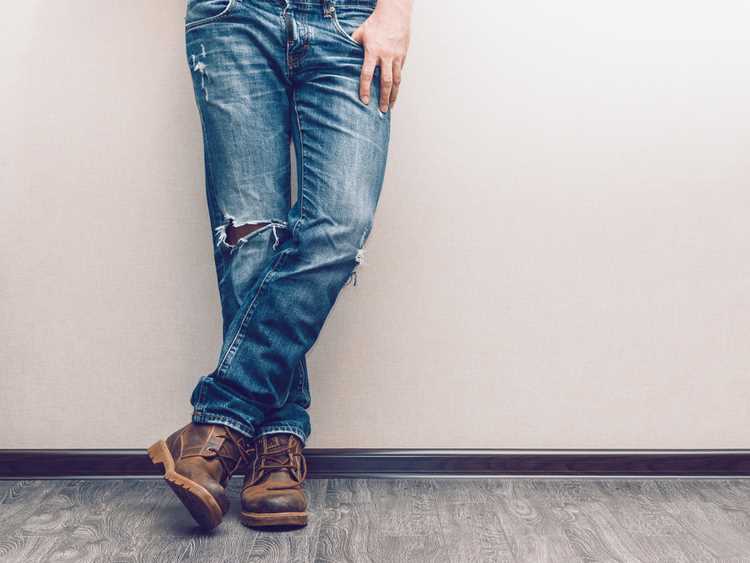
If your jeans have a small stain or spot, spot cleaning can be a quick and effective solution. Follow these steps:
- Dampen a clean cloth or sponge with water.
- Add a small amount of mild detergent to the cloth or sponge.
- Gently blot the stain or spot, taking care not to rub it into the fabric.
- Rinse the area with water to remove any soap residue.
- Pat the area dry with a clean towel.
4. Freezing
Believe it or not, freezing your jeans can help eliminate odors without washing them. Follow these steps:
- Turn the jeans inside out.
- Place them in a plastic bag or freezer-safe container.
- Seal the bag or container and put it in the freezer for at least 24 hours.
- Remove the jeans from the freezer and let them thaw at room temperature.
- Hang the jeans to air out and eliminate any remaining odors.
Remember, the frequency and method of washing your jeans can vary depending on various factors, such as how often you wear them and the type of fabric they are made of. It’s important to read the care label on your jeans and follow the manufacturer’s instructions for best results.
Storing and Caring for Your Jeans
Proper care and storage of your jeans can help prolong their lifespan and maintain their shape and quality. Here are some tips to keep your jeans looking their best:
1. Washing Frequency:
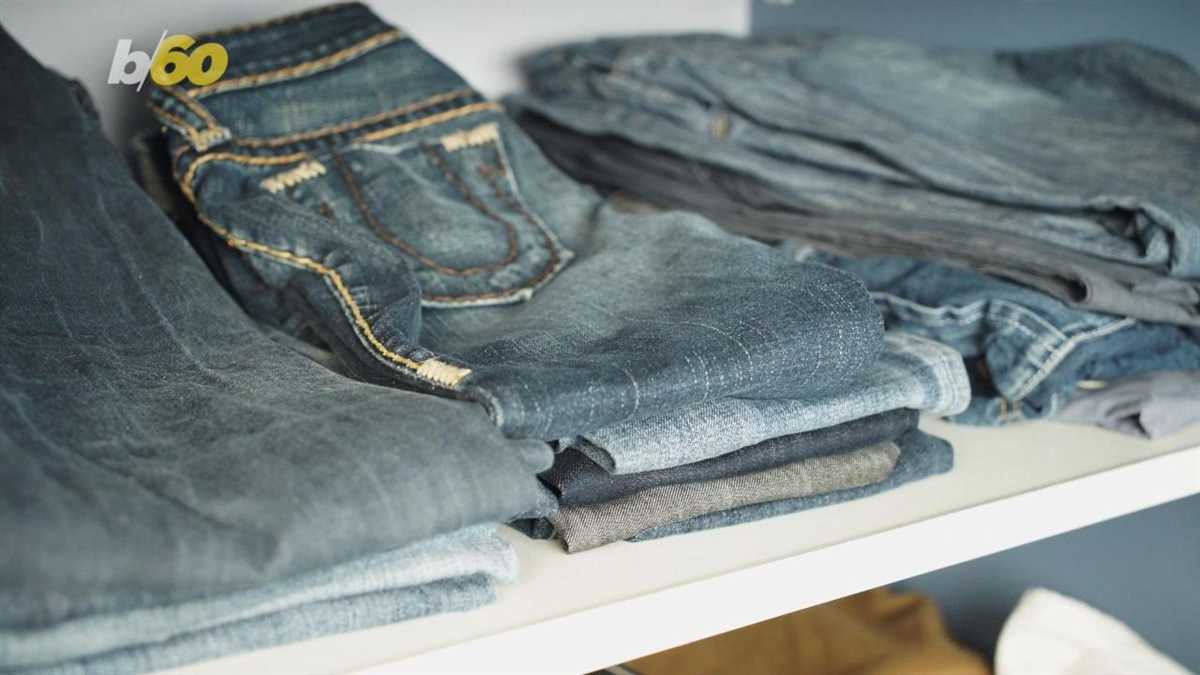
Jeans do not need to be washed as frequently as other garments. Aim to wash your jeans every 5-7 wears, or when they become visibly dirty or have a noticeable odor. Avoid washing your jeans after each wear to prevent fading and preserve the indigo color.
2. Spot Cleaning:
If you notice a small stain or spot on your jeans, try spot cleaning it instead of washing the entire garment. Use a mild detergent or soap and gently rub the affected area with a soft cloth or sponge. Rinse with clean water and allow the spot to air dry.
3. Storage:
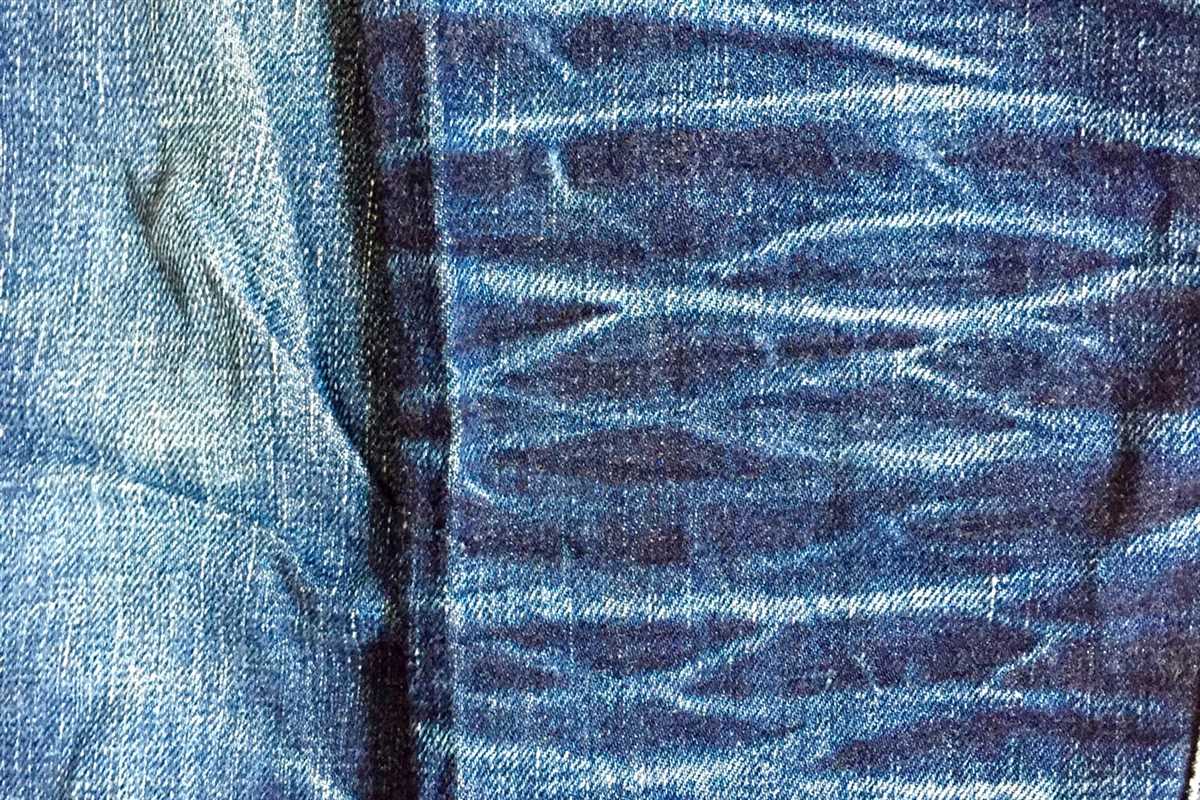
When not wearing your jeans, store them properly to maintain their shape and prevent creasing. Avoid hanging your jeans, as this can lead to stretch and distortion. Instead, fold them neatly and place them in a drawer or on a shelf.
4. Folding Technique:
To fold your jeans, lay them flat on a clean surface and smooth out any wrinkles. Fold one leg over the other, aligning the inseams and ensuring the waistband is straight. Fold the bottom of the jeans to meet the waistband, creating a neat, compact fold.
5. Avoid Overstuffing:
Avoid overstuffing your storage space with too many jeans or placing heavy items on top of them. This can cause the jeans to lose their shape and result in unwanted creases and wrinkles. Allow your jeans to have enough space to breathe and retain their form.
6. Avoid Extreme Temperatures:
Keep your jeans away from extreme temperatures, both hot and cold. High heat can cause the fabric to shrink and fade, while extreme cold can make the jeans stiff and less comfortable to wear.
7. Rotate Your Jeans:
Rotating between multiple pairs of jeans can help prolong their lifespan. By wearing different pairs on different occasions, you give each pair a chance to rest and recover, reducing the wear and tear they experience.
8. Professional Alterations:
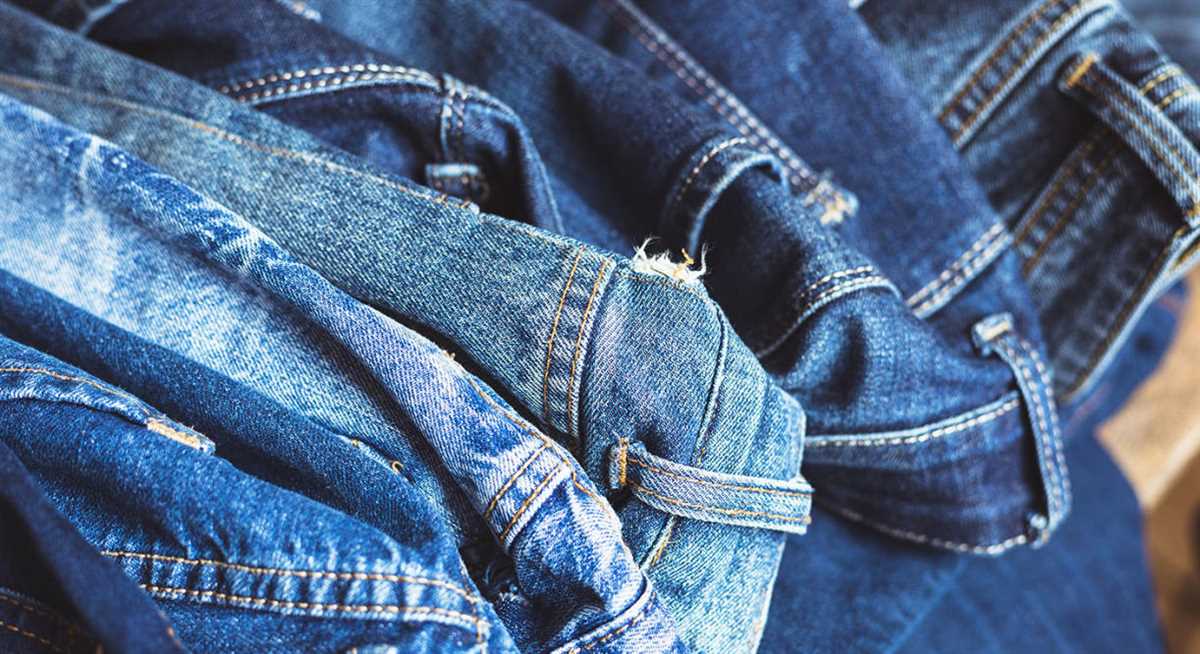
If you have jeans that are too long or require alterations, consider taking them to a professional tailor. Getting the perfect fit can make a significant difference in both comfort and style.
By following these tips, you can ensure that your jeans stay in great condition for longer, allowing you to enjoy them for many years to come.
FAQ
How often should I wash my jeans?
The frequency of washing jeans depends on your personal preference and the state of the jeans. If they are not stained or dirty, you can wear them multiple times before washing. Washing them too frequently can cause them to fade and wear out faster. It is generally recommended to wash jeans every 4-6 wears.
Will washing my jeans too often damage them?
Washing jeans too often can cause them to fade and lose their shape. The abrasive action of the washing machine can also weaken the fabric and lead to faster wear and tear. It is best to wash your jeans only when necessary, especially if you want to maintain their color and fit for a longer time.
What should I do if my jeans smell bad but don’t look dirty?
If your jeans have a bad smell but do not have visible stains or dirt, you can try freshening them up without washing. Hang them in a well-ventilated area or outside to air out. You can also spritz them with a fabric deodorizer or use a clothing refresher spray. Avoid using strong fragrances that may leave a residue on the fabric.
What are some tips for extending the time between washes?
If you want to extend the time between washing your jeans, there are a few things you can do. Firstly, avoid wearing them for activities that are likely to result in stains or dirt. Spot clean any spills or stains immediately to prevent them from setting in. You can also alternate between multiple pairs of jeans to reduce the frequency of washing. Lastly, consider using a fabric freshener or hanging them out to air between wears.











